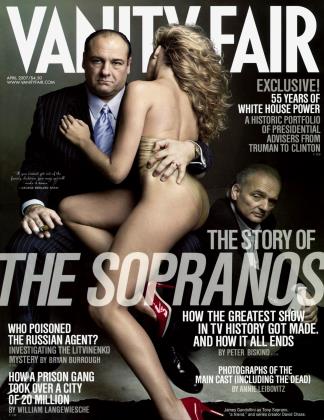Sign In to Your Account
Subscribers have complete access to the archive.
Sign In Not a Subscriber?Join NowIn 1983, Leo Lerman was named editor of Vanity Fair, a job he'd wanted for 55 years. As the features editor of Vogue for 11 of those years, he'd exercised his innate taste, wit, curiosity, and talent for instant intimacy and become a cultural landmark. He was famous for throwing fabulous parties—"Sunday nights of mass affection," he called them—in his dark, antique-stuffed town house, whose rickety stairs were the red carpet of his time, risked by everyone from Truman Capote to Marlene Dietrich, Rudolf Nureyev, Maria Callas, and W. H. Auden. He knew everyone, saw and heard everything. Greedy? He was voracious, pouncing on the delicious whether it was a new restaurant or a new writer. To work for him, as I did when I was starting out, was to be caught up in his glamorous orbit. "Get me Cary Grant" was the sort of order a young assistant didn't mind obeying. And always he was scribbling in his journals, with purple ink in his spiky handwriting. He'd describe a conversation with Princess Margaret at Cecil Beaton's party for Audrey Hepburn. He'd comment on his friends: "Tennessee was all the women he ever wrote." Now, 13 years after his death, Stephen Pascal, his longtime amanuensis (Leo loved those $ 10 words), has deciphered the handwriting and edited The Grand Surprise: The Journals of Leo Lerman (Knopf). Its pages are sequined with his dazzling friends, but Leo himself is the best company, startlingly self-aware, ecstatic in the presence of beauty, abidingly tender about the love of his life, the artist Gray Foy, and gallant in the face of pain. Anyone at all familiar with what Buddhists call the vicissitudes of living—gain and loss, fame and disrepute, praise and blame, pleasure and sorrow—will hear in his sensible talking to himself the voice of the wise uncle he was to so many of us.
 View Full Issue
View Full Issue












Subscribers have complete access to the archive.
Sign In Not a Subscriber?Join Now